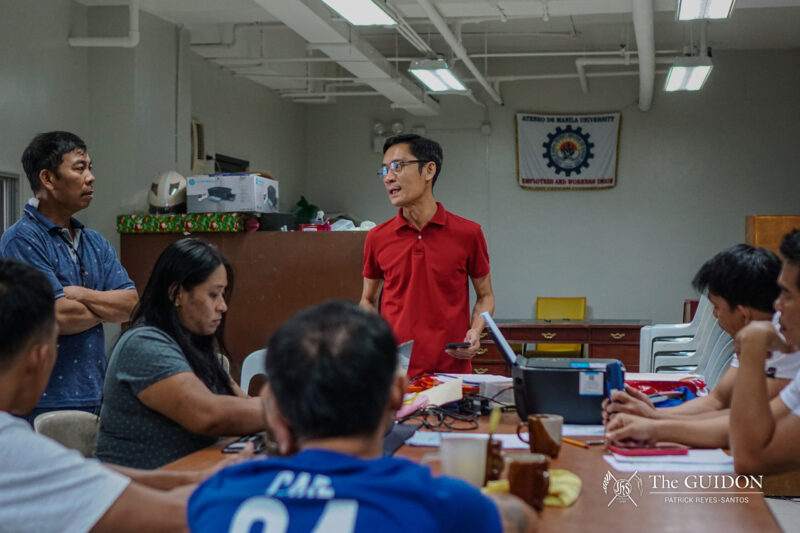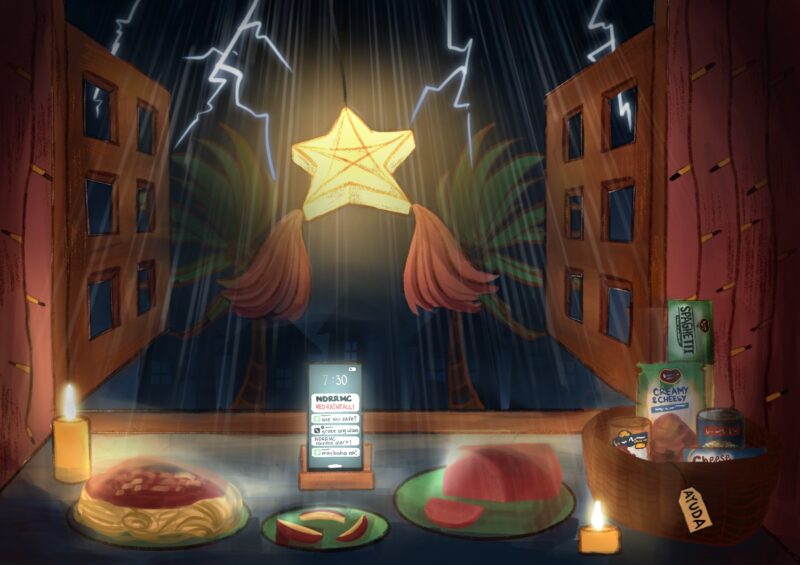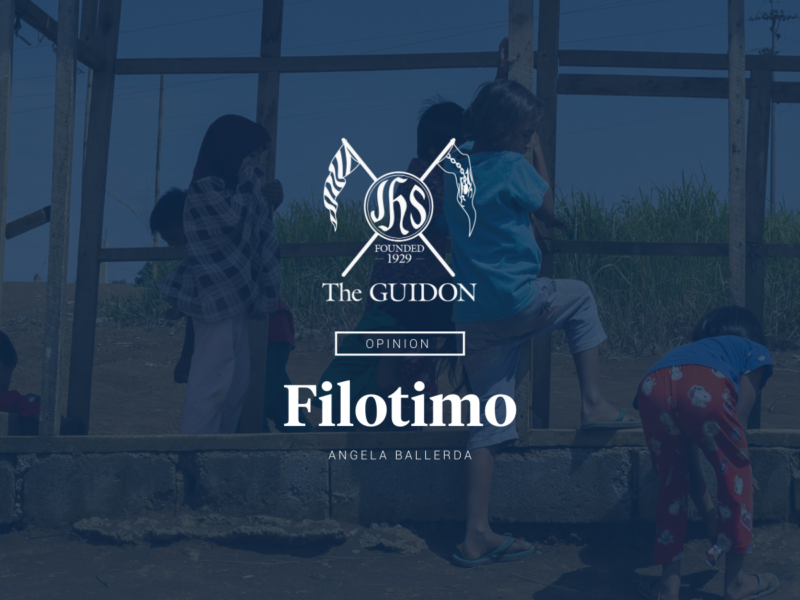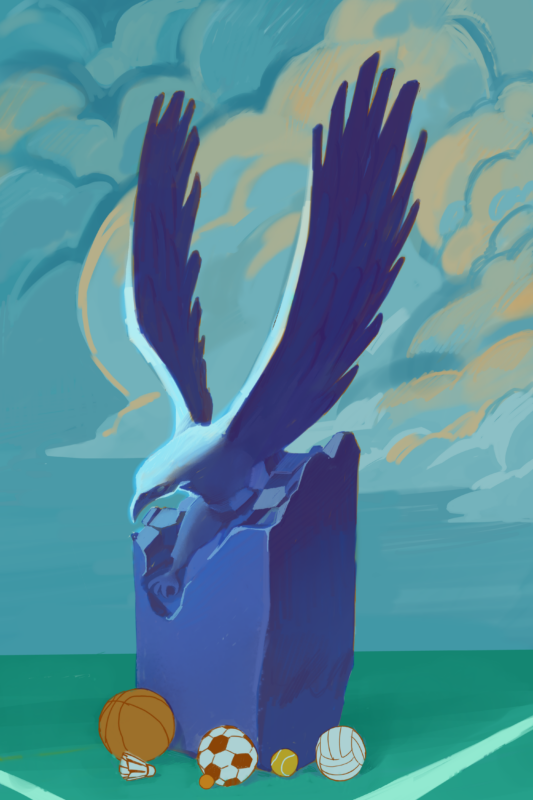SEVEN MEMBERS of the Ateneo community were given recognition in this year’s Carlos Palanca Memorial Awards for Literature.
Junior interdisciplinary studies major Sari Molintas won 2nd prize in the English Kabataan Essay category with her piece, “Being Bookish,” while Creative Writing Coordinator Martin Villanueva’s “Dao” won 2nd prize in the English Essay category.
Filipino instructor Mark Benedict Lim bagged 1st prize in the Maikling Kwento Category with his entry “Banaag,” while Filipino lecturer Mary Grace Panganiban-Mendoza racked up 3rd prize in the Sanaysay category for her essay “Redempsiyon.”
Other Atenean winners included Ma. Blanca Bautista (AB Comm ’04), whose work “Magic and Nine Other Magical Poems” won 2nd prize under the Poetry for Children category; Kristian Sendon Kordero (MA Fil Lit ’12), with his 2nd prize winner “Pagsalat sa Pilat” under the Tula category, and Mia Buenaventura (AB Comm ’94), with her “Ang Bulag na Musikero,” which placed third under the Dulang Pampelikula category.
The Carlos Palanca Foundation is one of the country’s most prestigious and longest-running literature award-giving bodies.
The awarding ceremonies were held at the Peninsula Manila last September 1.

PAYING TRIBUTE. Interdisciplinary studies major Sari Molintas dedicated her essay “Being Bookish,” which won second place in the English Kabataan Essay category, to her mother. Photo by Christie K. Lim and Ryan Y. Racca.
Living up to the standard
“I still don’t know how I feel [about winning]. It’s shocking,” said Molintas, who is a first-time recipient of the Palanca award.
Submissions for the English Kabataan Essay category had to answer the question “In the advent of e-books, do I still consider printed books to be an important part of education?”
“I think one of my biggest convictions in the essay is that, as someone who personally grew up without much technology, books [are] really important [for learning],” said the scholar.
“I feel like there are many kids like me, especially in the Philippines, [who are] not really exposed to downloading e-books or reading online,” Molintas said.
She said she wanted to point out how printed books would be more beneficial to Philippine education. She also said nothing can take away the experience of sitting down with an actual book.
Because her mother played an important part in her journey as a writer, Molintas dedicated “Being Bookish” to her. She says that her mother always encouraged her to write for the Kabataan Essay. “In a way, I wanted to pay tribute to the fact that I have a single mom who gave me this amazing life [to me] no matter what limitations, and books just happened to be her method,” she said.
Molintas admitted that she was not expecting to win, but she expressed her gratitude to the way English is taught in the Ateneo. She mentioned how her English teacher Alexis Abola also encouraged her to continue writing.
“Part of me still doesn’t want to believe [that I won] in the sense that I’m afraid of that standard, and living up to that standard,” Molintas said. “I will definitely keep on writing, but I don’t know if I’ll still join the Palanca. Never say never, though!”

EXPLORING CHANGES. Creative Writing Coordinator Martin Villanueva based “Dao,” his entry which placed second in the English Essay category, on the place he grew up in and the changes that happened over time. Photo by Christie K. Lim and Ryan Y. Racca.
“Not finished“
Two-time Palanca awardee Villanueva said that his entry “Dao” was named after the street where his parents lived and where he grew up from age 12 to 24. “In a lot of ways, I was interested in exploring how the physical changes in the house also coincided, mirrored, juxtaposed against the changes in the people who live in it.”
He said that his essay allows his readers to view the physical space and his family through his eyes. “I am the lens with which to view this place, but I rarely talk about myself,” Villanueva said.
Asked about the biggest obstacle he had to face in writing “Dao,” Villanueva said that he was his own enemy.
“I felt that for a long time, I was very much comfortable in a single mode of writing,” he said. “The more I can step away from the mode that I’m comfortable in, the better for me.”
For him, his strong attachment to “Dao” is due to the fact that it was in the form of 20 vignettes written over a period of time. “I think it was a good lesson for me to learn that not everything that you write in any given moment has to have an end immediately. You can actually save it somewhere [and] use it for something else,” Villanueva said.
He said that he enjoys the fact that some parts of “Dao” have already been published in finished form. “I enjoy that kind of thing: how some of these works can stand on themselves [and] how they can also bleed into others. I think that’s exciting. And that’s really where I’m at now,” he said.
Los desaparecidos
“Banaag” revolves around the story of a nurse with the same name, who one day woke up in her house still wearing her uniform and without any memory of the days before.
According to Lim, before Banaag went to sleep, she was actually an activist who got captured. “Basically, it’s a weird story,” said Lim in a mix of English and Filipino. “The story will feature two versions of Banaag: that of her as a nurse, and of her as an activist.”
“It’s not the usual realistic story… One of my goals was to be able to create a way of narrating that has not yet been done here in the Philippines. I write my stories non-linearly,” Lim said.
“Banaag” was inspired by Lope K. Santos’ “Banaag at Sikat,” but the first-time Palanca awardee said that although both stories tackled activism, “Banaag” was set in a contemporary time and discussed themes such as modern-day heroes of Philippine society and what the Latin Americans called los desaparecidos or “the disappeared.”
Lim was a student activist during the time of Jonas Burgos’ alleged abduction in 2007. Burgos was a fellow student activist.
He said that one of the reasons he wanted to write “Banaag” was for him to be able to understand the issue of the disappeared.
“How exactly do you tell the story of a phenomenon where someone just vanishes, with his or her family not knowing if he or she is still alive?” he said. “That’s hard. That’s worse than murder because there’s no possibility of grieving.”
It was a challenge for Lim to write his award-winning piece because, as he said, he was no longer familiar with the life of an activist—and much less with the life of a nurse. He also started writing the short story at the time when he was still new to teaching.
Lim is happy that other Ateneans have received recognition from the recent Palanca Awards as well. He wished for the further growth of the writing culture in the Ateneo.
“We already have a rich history of literary greatness here, but there’s still a concentration of a few Ateneans who actually write. I hope that with this recent win in the Palanca, other Ateneans will start to understand that they can actually win in these kinds awards.”







